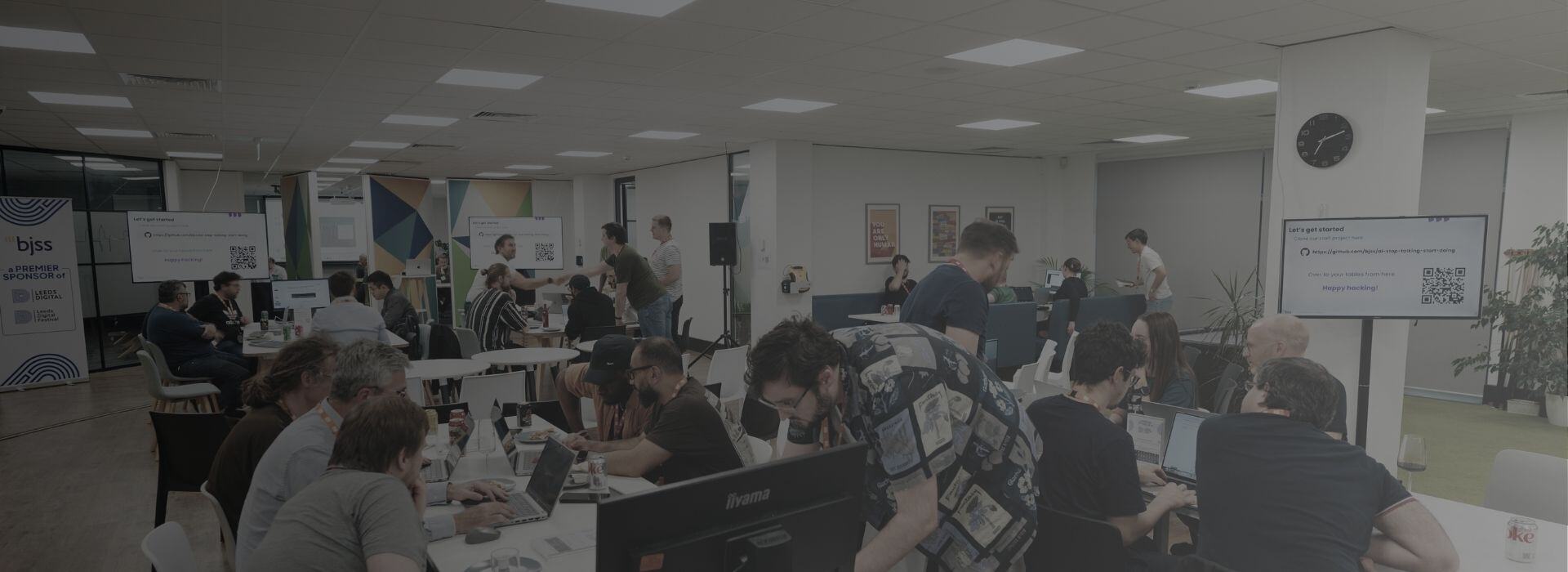As part of the Leeds Digital Festival, industry leaders and innovators gathered to explore the transformative potential of AI for organisations and how they could get ready for it. The BJSS hosted event provided attendees with actionable strategies to implement AI initiatives that boost operational efficiency and improve outcomes.
One of the highlights was the immersive workshop, where participants gained hands-on experience building AI-powered knowledge management tools. Live demos showcased cutting-edge AI solutions to enhance workflows across a variety of roles, offering insights into how AI can revolutionise everyday operations.
Pillars of readiness
The successful integration of AI requires more than just exposure to AI tools. To effectively integrate AI into your organisation, understanding the foundational pillars of readiness is vital. These pillars encompass essential elements such as technological infrastructure, data availability, and organisational culture, all of which support effective AI adoption.
Our six pillars of AI readiness are detailed below, highlighting the foundational elements that support AI adoption, including data management, AI models, and people and processes.

Identify a ‘killer use case’
A 'killer use case' is a specific application of AI that offers significant value and addresses a critical problem within your organisation. It should be compelling enough to gain stakeholder buy-in and demonstrate the transformative potential of AI. Although AI might not fully address the entire use case independently, it should offer the most effective solution for the majority of it.
When evaluating a use case, consider three key aspects:
- Value: Assess the potential impact and benefits the AI solution could bring. This involves analysing how it can improve outcomes, enhance operational efficiency, and create better experiences.
- Feasibility: Examine the feasibility of the use case in terms of data availability, process readiness, and human resources. Evaluate whether you have the necessary data infrastructure, workflows, and skilled personnel to support the AI initiative.
- Ethics: Consider the ethical implications of the AI solution. This includes ensuring explainability in AI decisions and aligning the technology with your organisation's values. Transparent AI systems build trust and foster acceptance among users.
Understand AI capabilities
Recognise what AI is good at and when it may be less suitable. AI excels in processing large volumes of data, identifying patterns, and automating repetitive tasks. However, it can cause more harm than good when datasets are heavily imbalanced (biased) and is downright useless when there are no patterns to be found in those datasets.
Identify the right data for AI success
Ensure that you have access to high-quality, relevant datasets that can be used to train your AI models effectively.
The journey from AI curious to AI capable
Transitioning from being AI curious to AI capable involves building skills, fostering a culture of innovation, and investing in training and resources. This journey requires a commitment to continuous learning and adaptation.
Barriers to AI adoption – The factors that can hinder successful AI adoption
- Establishing clear governance structures is essential for managing AI initiatives effectively.
- Engaging and empowering staff at all levels is important for overcoming resistance and building support.
- Building trust in AI systems requires transparency and values-based ethical guidelines.
- Ensuring that AI solutions can scale effectively across the organisation is vital for maximising impact.
- A strong business case must be articulated to secure funding and resources beyond initial experiments.
- AI solutions need to be seamlessly integrated into existing workflows and processes to be effective.
Engaging users for continuous AI improvement
Finally, successful adoption hinges on realising value from people actively using these AI-powered solutions. Engaging users throughout development and gathering feedback to continuously refine and enhance these solutions will stimulate user engagement and enhance the positive impact these solutions have.
Are you ready to harness the power of AI to transform your organisation?
At Leeds Digital Festival, we explored actionable strategies, hands-on tools, and key insights that will help you to embrace the future of AI. Now it's your turn to take the next step.
.svg)
